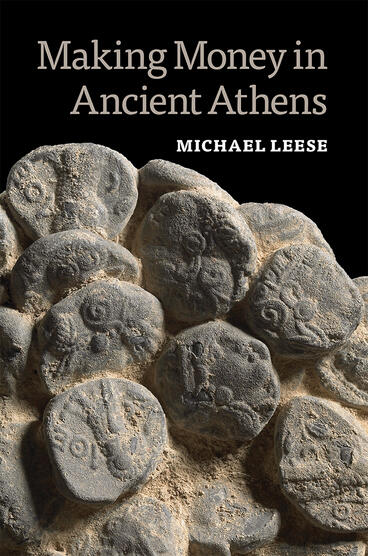Making Money in Ancient Athens
Explores how ancient Athenians made economic decisions
Description
Given their cultural, intellectual, and scientific achievements, surely the Greeks were able to approach their economic affairs in a rational manner like modern individuals? Since the nineteenth century, many scholars have argued that premodern people did not behave like modern businesspeople, and that the “stagnation” that characterized the economy prior to the Industrial Revolution can be explained by a prevailing noneconomic mentality throughout premodern (and nonwestern) societies. This view, which simultaneously extols the “sophistication” of the modern West, relegates all other civilizations to the status of economic backwardness.
But the evidence from ancient Athens, which is one of the best-documented societies in the premodern world, tells a very different story: one of progress, innovation, and rational economic strategies. Making Money in Ancient Athens examines in the most comprehensive manner possible the voluminous source material that has survived from Athens in inscriptions, private lawsuit speeches, and the works of philosophers like Aristotle and Plato. Inheritance cases that detail estate composition and investment choices, and maritime trade deals gone wrong, provide unparalleled glimpses into the specific factors that influenced Athenians at the level of the economic decision-making process itself, and the motivations that guided the specific economic transactions attested in the source material. Armed with some of the most thoroughly documented case studies and the richest variety of source material from the ancient Greek world, Michael Leese argues that the evidence overwhelmingly demonstrates that ancient Athenians achieved the type of long-term profit and wealth maximization and continuous reinvestment of profits into additional productive enterprise that have been argued as unique to (and therefore responsible for) the modern industrial-capitalist system.
Michael Leese is Associate Professor of History at the University of New Hampshire.
Reviews
“I anticipate that this book will attain the status of being a classic, the kind of book that will be cited routinely in discussions of Greek society, cultural concerns, and, of course, economic priorities. Its abundant marshaling of evidence effectively settles the Great Debate on cultural vs. material gain in the managing of personal, family, and commercial wealth with a thoroughness that was simply not available previously.”
- John Kroll
–John Kroll, University of Texas
"Leese should be congratulated on writing a book of undoubted importance. ...Making Money is a model for future work."
- David Lewis
—Bryn Mawr Classical Review
News, Reviews, Interviews
Listen: Interview on the New Books Network | 09/29/2022

